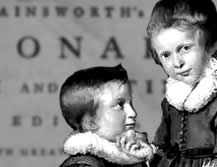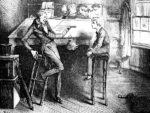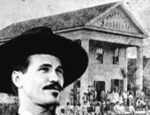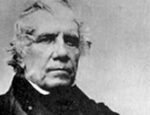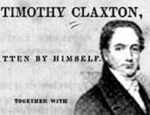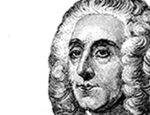Description
 Read Robert Ainsworth’s proposals for teaching the super-rich to speak fluent Latin. Born into an obscure non-conformist family in Eccles, Lancashire in 1660, Ainsworth was educated in Bolton; a talented linguist, he became a schoolteacher, first in Bolton and then at Bethnal Green in London. He was committed to the abandonment of the corporal punishment of children.
Read Robert Ainsworth’s proposals for teaching the super-rich to speak fluent Latin. Born into an obscure non-conformist family in Eccles, Lancashire in 1660, Ainsworth was educated in Bolton; a talented linguist, he became a schoolteacher, first in Bolton and then at Bethnal Green in London. He was committed to the abandonment of the corporal punishment of children.
Ainsworth authored a famous Latin-English dictionary (1736) used to educate countless schoolboys, and often reprinted for a century. But his most interesting publication is The most Natural and Easie Way of Institution: containing Proposals for making a Domestic Education less chargeable to Parents, and more Easie and Beneficial to Children (1698). It is addressed with embarrassing sycophancy to Sir William Hustler, a Bridlington cloth merchant knighted in 1688 and concerned about his sons’ education.
Ainsworth’s proposals assume phenomenal wealth. A house needs to be hired ‘a small distance from London, with a large garden’, and TWO masters hired to speak Latin with the boys round the clock. Ainsworth warns against sending children to school. From dame schools boys only learn to make errors in spelling and punctuation like ‘Vulgar People’. At ‘Publick School’, ‘for the sake of a little Latin’, boys are exposed out of hours to the ‘Common, if not impious Sayings, of Porters, Car men, and Kitchen-Wenches.’ They are also mistreated by teachers: ‘ ‘Tis strange to me that Persons of Quality… should suffer their Children to be whipp’d and abus’d by every little fellow, whose understanding a little Latin and Greek is the only Title he has to the Birchen Scepter.’
A boy of obvious good ‘breeding’ must be isolated with his tutors and mother. But the ‘Mistress of the House, in some measure, should understand and speak Latin, at least such forms as will suit her Occasions, which are about Dressing and Undressing, and serving them with Meat; and no Servant, at any time, be suffer’d to speak to any of them but before the Master, and that in a prescrib’d form.’ For if a boy speaks improperly, it is because ‘he has convers’d most with those that spoke improperly, his Nurse or Servants, than which Conversation nothing can be more pernicious either to a Childs Language, or Manners.’
Ainsworth’s plan for producing a perfect, Latin-speaking aristocratic child reveals a tension between his conservative advocacy of using Latin to maintain social barriers and his pro-child, humane pedagogical methods. He became an ardent Methodist and in old age was known to Charles Wesley. The moderate fortune he made by teaching he bequeathed to the poor in his home town.

